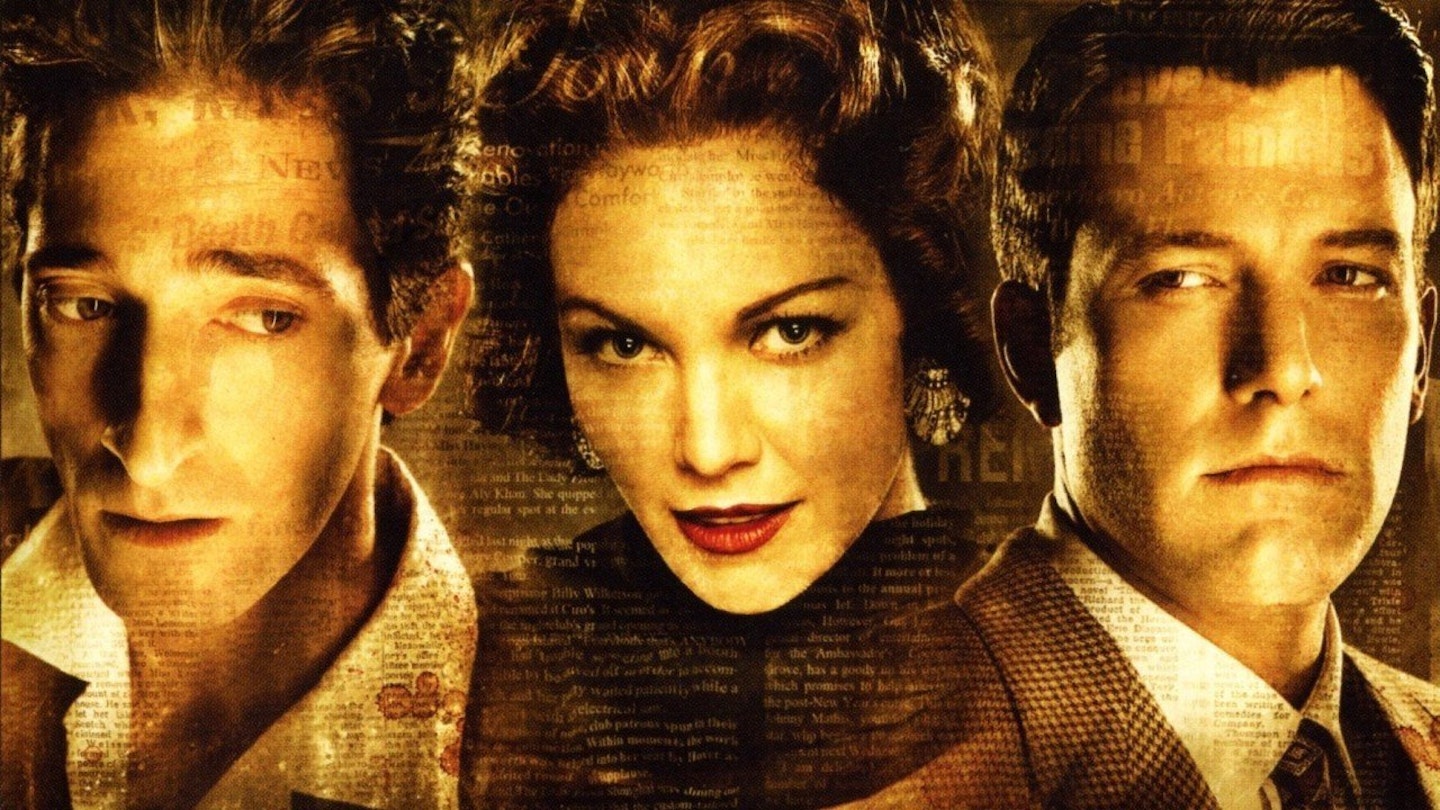According to Hollywood, Hollywood sucks. The movie business is fatal; it’ll get you in the end. From All About Eve to The Aviator, from Sunset Boulevard to Brian De Palma’s crazy noir noodling on genuine unsolved murder The Black Dahlia, the evidence is that you’re going to end up mad, drunk, ruined, or in the local morgue in two clean halves with your internal organs missing. It is a tough business. According to the movies, Tinsletown is a wasteland of shattered dreams, where the limelight is but a flash in the pan and age will creep up and smother you. Fame is only for the famous.
Directors love to slither through the cruelty of their own game, imbuing their findings with a not-on-my-watch sense of moral superiority, gloomy warnings from Hellywood’s sleazy past. The glimmer of the dream factory was just a cover, they clamour; beneath was (and is) a web of greed, exploitation, and death glimpsed through a smear of fading glamour and cigarette smoke.
Sporanos veteran Allen Coulter’s noir-hued morality tale / whodunit / Ben Affleck revival vehicle is all about the psychological rot beneath the moneyed veneer of the late ’50s. It’s the story of George Reeves, a well-girthed guy low on talent but cute enough to get halfway up the ladder as TV’s Superman who found, back in the real world, that he couldn’t dodge bullets, and left his brains smeared across his bedroom wall. Burn out or foul play? That is the question which to this day remains unanswered. And Coulter and writer Paul Bernbaum are intent on taking the scenic route through the facts of the case. They revel in recreating a sun-baked period LA tinkling with celebrity cocktail parties, like the one where Reeves’ first hits it off with Toni Mannix (Diane Lane), an older, savvier studio wife looking for a pretty lug to stave off time’s wear and tear.
Affleck, who can clearly feel the resonances with his own topsy-turvy career, adds 20lbs to his lanky frame and creates a soul bound for the lower reaches. Reeves has all he could want, but not what he wanted. His peers derided him, his career stalled in the cape, but he had the adoration of every American moppet. In one chilling depiction of fame’s delusional cloak, a public appearance in his padded suit is almost derailed as a small child, intent on testing Superman’s famed invulnerability, pulls out a real pistol. The reality is that he is all too vulnerable, the poison of public indifference gnawing at him like kryptonite.
Lane too is excellent, giving a brave portrayal of fading beauty. Mannix is a tragic figure, smart enough to understand if not deal with the inevitable. “I have seven good years before my ass drops like a duffelbag,” she growls, facing the truth like an oncoming train. There is real sensitivity in the depiction of their entwined fates, the certainty that the world they depend on will inevitably toss them aside.
The script’s game, though, is twofold: to study this turbulent ebb and flow of success, and to try its hand at a crime flick in which Adrien Brody’s dogged gumshoe edges his way towards truth, justice and the Hollywood way — that is superficiality with razor edges. It is from the perch of his pulpy investigations that we gaze back into Reeves’ doomed finale.
When it comes to sleuthing out a credible solution to Reeves’ untimely demise the movie gets all Rashomon with the facts — different interpretations from different perspectives. Was it the suicide of a depressed man who knows he’s has his day? Was it the work of his new fling? Prissy little grabber Leonore Lemmon (Robin Tunney) shows about as much remorse over the death of her fiancé as she would a terminal goldfish. Or was it a crime passionel by Toni Mannix, spurned for a younger, dumber model, her final nudge into the yawning chasm of age? Or, indeed, was it down to the manipulations of her husband, MGM bigwig Eddie Mannix (Bob Hoskins), another ‘fix-it’ job in a town ruled by the studios and their oily publicity men? There’s a sprawl of possibility, but the film isn’t so much a whodunit as a whywasitdun.
While fully evoking an LA bleached out in a permanent heat haze with its sulky mix of shadowy mansions and seedy motels, Coulter never quite snares the potential darkness in Reeves bitter end. Even though things kick-off as gunshots echo across a midnight street, it doesn’t energise as the film noir it’s aiming for. Instead, it thrives as a horror story, albeit where the bogeyman on the steps is simply irrelevance.


